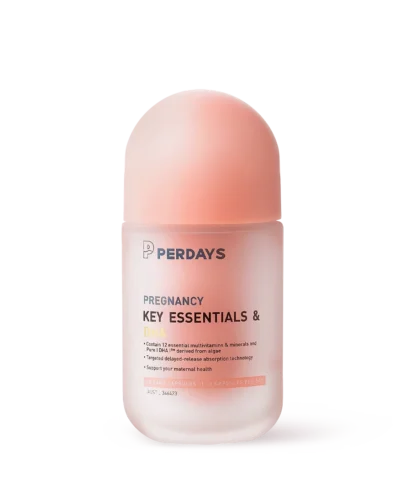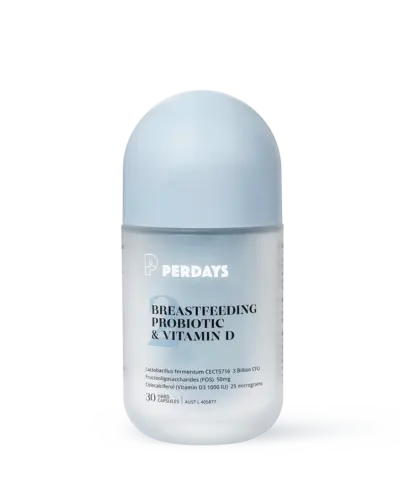Contents
- When to Stop Breastfeeding?
- Can You Drink Alcohol While Breastfeeding?
- Can You Get Pregnant While Breastfeeding?
- Can You Get Botox While Breastfeeding?
- Foods You Might Want to Avoid When Breastfeeding
- Can Your Drink Coffee When Breastfeeding?
- Does Breastfeeding Make you Tired?
- How Soon Does Milk Replenish After Breastfeeding?
- How Many Calories Do You Burn While Breastfeeding?
- What Foods Might Cause Gas (infant colic) While Breastfeeding?
- What to Eat When Breastfeeding?
- Should you take vitamins while breastfeeding?
The Essentials
- Alcohol and Botox should be avoided while breastfeeding due to limited research on their safety.
- Pregnancy can occur while breastfeeding, so use contraception if you want to avoid a surprise!
- Be aware of reactions in your baby which may be associated with certain foods you have consumed, as this can help identify foods which may cause discomfort.
- Moderate caffeine intake is considered safe while breastfeeding.
- A well-balanced diet and along with nutrient supplementation (where appropriate) are important for breastfeeding mothers to ensure adequate nutrient intake.
About Breastfeeding
Throughout human history, breastfeeding has been a crucial practice for survival and bonding along with many other benefits for both mother and baby. However, for some mother’s-to-be there can be uncertainty and anxiety surrounding this natural physiological process. In this post, we’ll answer some of the most commonly asked questions about breastfeeding, such as when to stop, what to eat, and if it’s okay to drink alcohol or even get Botox! You might be wondering what foods to eat to encourage milk production or what foods to avoid in order to minimise unwanted symptoms (such as infant colic). We will discuss these topics and much more, including which vitamins and minerals may be beneficial to supplement while breastfeeding. We know you want the best for your baby – and probably eager to regain your own sense of wellbeing and vitality. We’re going to address all your niggling questions!
When to Stop Breastfeeding?
When to stop breastfeeding is a personal choice for each woman to make, based on her circumstances and preferences. The World Health Organisation (WHO) advises continuing to nurse a newborn exclusively for the first six months of life, then continuing to do so while introducing supplementary meals until the child is two years old or older. Some mums, however, decide to cease breastfeeding before (or sometimes after) this time frame. To make sure that your baby’s nutritional requirements are being fulfilled, it’s advisable to consult a qualified healthcare professional before making changes.
Can You Drink Alcohol While Breastfeeding?
Drinking alcohol while breastfeeding might have a negative impact on the baby’s health. Alcohol easily transfers into breast milk can make a baby drowsy, fussy, and unable to fall asleep. Avoiding alcohol while nursing is advised by the Australian Breastfeeding Association, especially in the first month when breastfeeding is being established. It’s recommended to wait at least two hours after each alcoholic drink before breastfeeding again (if you decide to consume alcohol).
Can You Get Pregnant While Breastfeeding?
Even if you haven’t started your monthly cycle again, it is still possible to become pregnant while breastfeeding. The frequency of breastfeeding, how much milk the baby demands and the age of the infant all affect your hormone balance and therefore, the probability of becoming pregnant during breastfeeding. Therefore, it’s crucial to utilise contraception if you wish to prevent pregnancy.
Can You Get Botox While Breastfeeding?
Information regarding the safety of Botox use while breastfeeding is lacking. Therefore, the only way to ensure the safety of your baby is to avoid Botox injections completely during the entire duration of breastfeeding. It’s not worth putting your baby’s health at risk when there is insufficient safety data.
Foods You Might Want to Avoid When Breastfeeding
Maintaining a healthy, balanced diet is crucial when breastfeeding in order to make sure the baby gets all the nutrients he or she needs. Spicy food, eating fruit after a heavy meal, and foods prone to producing gas, like beans and cabbage are some of the items that might cause tummy discomfort in you, and in your baby. It’s vital to keep an eye on how your infant responds to various meals (you have eaten!) and adapt as necessary.
Can You Drink Coffee When Breastfeeding?
Moderate caffeine use is considered safe during breastfeeding. The average nursing woman can have up to 300mg of caffeine per day, or about two cups of coffee. However, it’s crucial to keep an eye on how your infant responds to caffeine and make adjustments as necessary. Caffeine may make some newborns agitated or experience difficulty falling asleep depending on their sensitivity to it.
Does Breastfeeding Make You Tired?
For new mums, breastfeeding can be draining, especially in the early stages when the baby requires frequent feeds around the clock. However, studies have revealed that nursing may also benefit a mother’s sleep. Breastfeeding causes the body to release hormones which enhance relaxation and sleep, improving the overall quality of sleep.
How Soon Does Milk Replenish After Breastfeeding?
The process of producing breast milk is ongoing and is largely influenced by the baby’s demand for milk. The body is stimulated to produce more milk as soon as the infant latches and starts feeding. After nursing, it usually takes 20 to 30 minutes for the milk to refill, however this will vary depending on the frequency of feeds and the volume consumed by the baby each feed.
How Many Calories Do You Burn While Breastfeeding?
Breastfeeding consumes around 500-700 calories per day which is around ¼ of a woman’s typical daily intake of 2000 calories. This is why some mothers gradually lose weight despite consuming their normal “pre-baby” quantity of food! It can be important to ensure that crucial nutrients needed by the baby are in good supply during breastfeeding to support a healthy start to life.
What Foods Might Cause Gas (infant colic) While Breastfeeding
Certain meals can give newborns abdominal gas (colic), which can result in pain and constant, regular crying. It might be wise to eliminate some common gas-producing culprits from your diet if you notice they are associated with discomfort in the baby. Broccoli, cauliflower, cabbage, beans, onions, garlic, and spicy or highly-seasoned dishes are often associated with gastric upset. Although not all infants are sensitive to these foods, it’s important to monitor your baby’s response and modify your diet as necessary.
What to Eat When Breastfeeding?
Eating a well-balanced diet that features a range of nutrient-rich foods is crucial for breastfeeding mothers. Strive to eat a balanced diet that includes lots of colourful fresh vegetables, leafy greens and root vegetables, lean meat, wild caught fish, nuts and seeds, good quality fats, fresh fruit, and some whole grains. Keep processed packaged foods to a minimum. Breast milk is 87% water, so expect breastfeeding to make you very thirsty! Your body cannot produce milk without an adequate intake of water, so you should aim for around 12 glasses (3 litres) of water each day.
In addition to a nutritious diet, some foods are believed to support milk production, such as oatmeal, fenugreek, fennel, and brewer’s yeast. However, if you’re having trouble producing enough milk, it’s crucial to speak with a lactation consultant or experienced healthcare practitioner rather than risk insufficient supply for your baby.
Should you take vitamins while breastfeeding?
In order to make sure that you and your breastfed baby are receiving adequate nutrients, it may be helpful to supplement your diet with a multivitamin or even continue with your pregnancy supplements throughout breastfeeding. Mothers who are breastfeeding have higher nutritional requirements, particularly for the vitamins B12, D, and K, as well as iodine, DHA and antioxidants. To ensure optimum supplements for your requirements, choose quality products from reputable brands or consult with a healthcare practitioner.
To summarise, it’s crucial for women who are breastfeeding to maintain a healthy diet that is high in nutrient-dense foods, avoid processed foods and stay sufficiently hydrated to support milk supply. Some breastfed newborns may benefit when the mother avoids common gas-producing foods, and if she adds milk-boosting foods such as oatmeal to her diet. Moreover, continuing to take prenatal supplements or a good quality multivitamin while breastfeeding can help ensure that both you and your infant are receiving the nutrients you require during this crucial time. If you are worried about your diet or milk supply, talk to a lactation consultant or qualified healthcare practitioner.
Looking For a Pregnancy Multivitamin with DHA?
Perdays Pregnancy Key Essentials & DHA Perdays is designed to work synergistically to support your preconception and prenatal health, thanks to our patented Nutriseal™ encapsulation technology. This pregnancy multivitamin contains a precise combination of 12 essential prenatal vitamins & minerals with algae-derived DHA and Folinic Acid to be absorbed by all women.
Support you and your baby while breastfeeding
Perdays Breastfeeding Probiotic & Vitamin D has been formulated to support infant growth and development during breastfeeding and can help reduce occurrence of symptoms of mild mastitis. Each capsule Lactobacillus fermentum CECT5716 3 billion CFU, Fructooligosaccharides 50mg, and Colecalciferol (Vitamin D3 1000 IU) 25mcg
References
- https://www.betterhealth.vic.gov.au/health/healthyliving/breastfeeding-deciding-when-to-stop
- https://www.breastfeeding.asn.au/resources/alcohol-and-breastfeeding
- https://www.breastfeeding.asn.au/resources/getting-pregnant-while-breastfeeding
- https://www.ncbi.nlm.nih.gov/books/NBK501400/#:~:text=Drug%20Levels%20and%20Effects&text=No%20data%20exist%20on%20the,to%20protect%20infants%20against%20botulism.
- https://www.betterhealth.vic.gov.au/health/healthyliving/breastfeeding-and-your-diethttps://www.breastfeeding.asn.au/resources/caffeine-and-breastfeeding#:~:text=Most%20breastfeeding%20mums%20can%20drink,of%20what%20you%20take%20in
- https://pubmed.ncbi.nlm.nih.gov/16684906/
- https://www.childrens.health.qld.gov.au/fact-sheet-increasing-your-breast-milk-supply/
- https://llli.org/breastfeeding-info/weight-loss-mothers/#:~:text=While%20breastfeeding%20burns%20about%20500,2002%3B%20Dewey%2C%201994)
- https://www.seslhd.health.nsw.gov.au/sites/default/files/groups/Royal_Hospital_for_Women/Mothersafe/documents/VitaminsmineralspandbupdateSept19.pdf
- https://www.healthline.com/health/breastfeeding-vitamins



